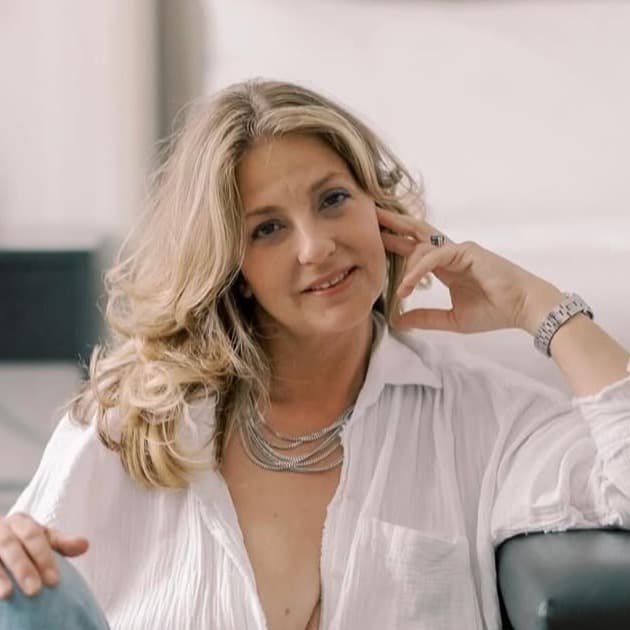Vanessa's Story: Gratitude, Grit, and the Gift of Perspective

Vanessa Cuccurullo is a Breastcancer.org community member in Shelter Island, New York, US.
In January 2024, a routine mammogram changed my life. I had no symptoms, no warning signs — just a gut feeling and a decade-old memory of being told, “You’re BRCA-negative, you’re fine.” But I wasn’t fine. I was diagnosed with invasive ductal carcinoma, ER-positive breast cancer. Again, cancer entered my life uninvited.
It wasn’t my first time facing cancer. At age 20, I survived synovial sarcoma after two years of misdiagnosis and a 14-hour limb-salvage surgery. That experience shaped me — it taught me grit, gratitude, and the power of early detection. It also showed me how to survive when the world shifts beneath you.
This time, I went straight into logistics mode. I’m a mom, a wife, and a realist. I gathered medical opinions, leaned on fellow survivors, and prepared for whatever came next. My team at Memorial Sloan Kettering confirmed a mastectomy was necessary. We sold our home in Dallas and moved back to New York to be closer to care and family support.
My journey wasn’t linear. I had three surgeries — mastectomy, emergency repair, and implant exchange. The pain was real. The drains were frustrating. The tissue expanders were uncomfortable. I cried. I laughed. I cursed. I healed. And I celebrated the small wins: walking around the block, putting on a tank top without fear, sitting at the dinner table with my family again.
Telling my children I had cancer was gut-wrenching. My husband, who had already stood by me once before, became my rock all over again. I reminded my kids of my first scars and said, “This is just another story your mom will survive.” And I did.
What I want people to understand is this: Breast cancer doesn’t end when treatment ends. The physical pain fades, but the emotional journey continues. You learn to live in a new body, with a new kind of vulnerability — and a deeper well of strength than you ever imagined.
If you’re newly diagnosed, here’s my advice: Ask questions, build a team you trust, and stay connected to yourself. Humor helps. So does a good playlist, a professional blowout, and a bra that doesn’t make you feel like a patient (AnaOno was my favorite).
The cancer community carried me through — fellow survivors, messages of hope, shared wisdom, and simple reminders that I wasn’t alone. That connection was everything.
Today, I live more grounded, more present. I meditate nightly to calm my nervous system and teach my children that mind and body are always working together. I remind myself often: this body isn’t broken — it’s been through war, and it’s still standing.
Early detection saved my life. So if you’re reading this, let it be your sign: Schedule the check-up, get the scan, ask the questions. It might just save yours.
And if you’re in the thick of it — hang on. Healing isn’t linear, but it is possible. One day, you’ll forget what floor your doctor’s office is on because life has moved forward. And that quiet, ordinary moment? It’s its own kind of miracle.